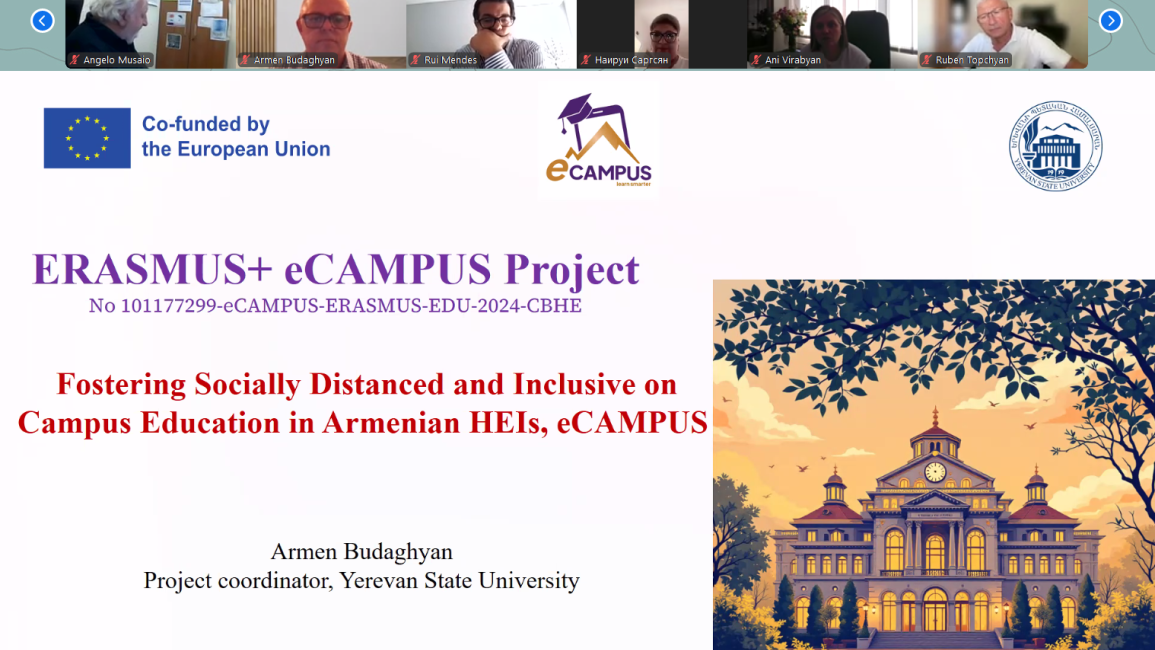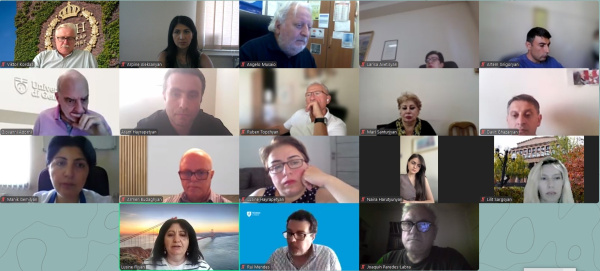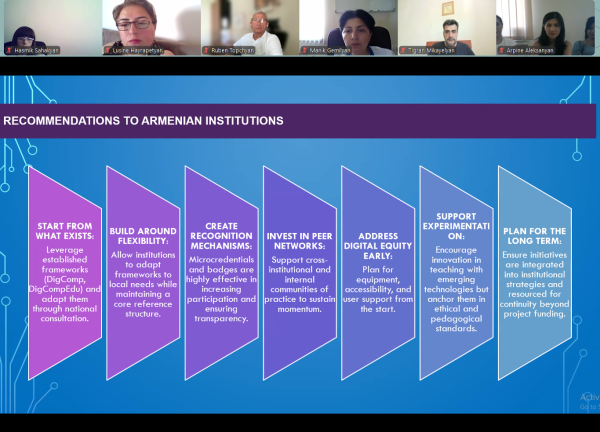September 02, 2025 | 11:07
Partners
International cooperation
Best practices and key challenges of digital competence frameworks discussed at online conference
An online conference was held within the framework of the Erasmus+ eCAMPUS project, coordinated by Yerevan State University. The event focused on reviewing the results of a needs assessment of teaching staff in Armenian universities and on the development of a digital competence framework for teaching, learning, and assessment.

The conference, titled "Developing a Digital Competence Framework for Armenian Universities and Drafting an Implementation Policy Document", took place on August 27 and brought together around 90 representatives from Armenian and European universities and educational institutions.
In his opening remarks, Armen Budaghyan, Director of YSU Quality Assurance Center and coordinator of the project, spoke about the main objectives of eCAMPUS and outlined the next steps. He emphasized the importance of creating a digital competence framework tailored to the needs of Armenian higher education institutions.
Following this, Lusine Fljyan, Vice-Rector of Northern University, presented international best practices in digital competence frameworks, as well as the main challenges encountered in their development and implementation.

In the first session, European partner universities shared their experiences. Presentations were delivered by Giovanni Adorni (University of Genoa), Rui Mendes (University of Lisbon), Joaquin Labra (University of Madrid), and Victor Cordas (Royal Institute of Technology, Stockholm), who outlined the development and implementation features of digital competence frameworks in their respective countries.
The second session highlighted the Armenian perspective. Representatives of Armenian universities — Aram Hayrapetyan (Yerevan State Medical University), Artur Avagyan (YSU), Marianna Harutyunyan (Armenian State Pedagogical University), and Lusine Fljyan (Northern University) — presented the results of surveys assessing the digital needs of students and faculty members. Serob Khachatryan, lecturer at YSU Faculty of Philosophy and Psychology, summarized the results of surveys conducted across eight Armenian universities, identifying the key issues and needs.

The central topic of discussion was the draft policy document on the introduction of a digital competence framework in Armenian universities. This was presented in detail by Aram Hayrapetyan, Head of the Quality Assessment and Assurance Center at Yerevan State Medical University. Professor Giovanni Adorni from the University of Genoa also outlined practical measures for integrating digital skills into teaching, learning, and assessment processes.
Concluding the event, participants underlined the importance of enhancing the digital competencies of teaching staff in Armenian universities and ensuring the effective adoption of a comprehensive framework.
The conference closed with remarks from project coordinator Armen Budaghyan, who thanked the participants and stressed the importance of meetings and constructive dialogue with partners and stakeholders.

